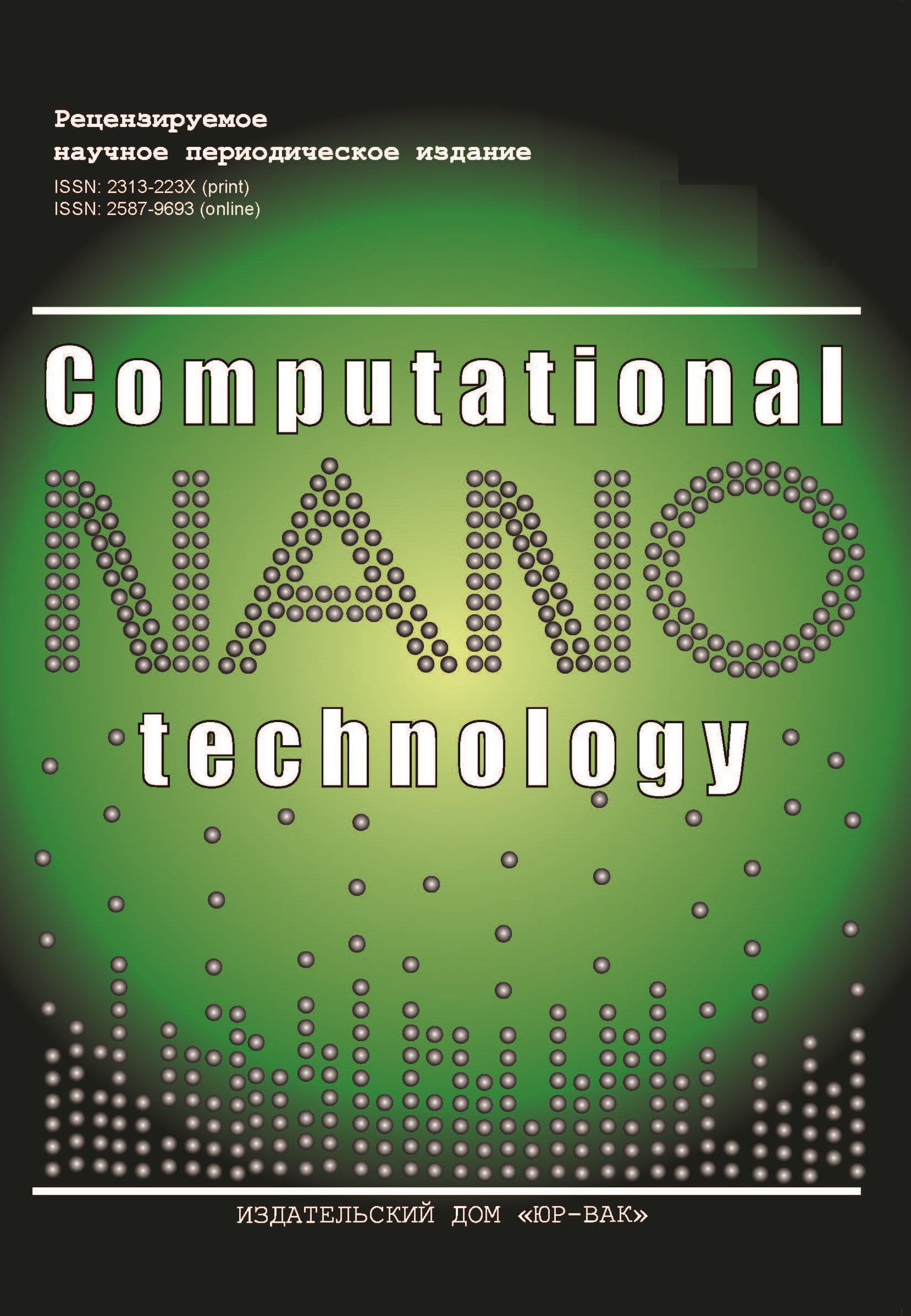Math Methods and Models of Products Knowledge Management
- 作者: Trishin A.A.1
-
隶属关系:
- Financial University under the Government of the Russian Federation
- 期: 卷 9, 编号 4 (2022)
- 页面: 35-41
- 栏目: Articles
- URL: https://journals.eco-vector.com/2313-223X/article/view/529868
- DOI: https://doi.org/10.33693/2313-223X-2022-9-4-35-41
- ID: 529868
如何引用文章
详细
The purpose of this research work is to review the existing literature on methods and solutions to the problem of efficient storage and processing of semi-structured semantic information, including in the field of product knowledge management. At the beginning of the article, the rationale for the relevance of the study is given, then it discusses possible ways to build an ontology of semantic networks, various types of knowledge representation, a stack of possible technologies on which such networks can potentially be implemented. An explanation of the semantics, ways to search for information in such systems, including an overview of the semantic data query languages used, as well as ready-made implementations of knowledge bases, is given. The result of the research work was the creation of an extensive database of analyzed sources, which raises the problem of processing semi-structured heterogeneous data, as well as searching for information on them. In addition, as a result of the study, the most effective solution to the above problem was derived - the construction of an ontology of knowledge, the representation of knowledge within the ontology, semantic networks and their architecture, and implementation. Finally, the author managed to prove a high degree of relevance of further qualitative and in-depth scientific research on the problem considered in the research work.
全文:
作者简介
Alexey Trishin
Financial University under the Government of the Russian Federation
Email: info@nationalscience.ru
graduate student Moscow, Russian Federation
参考
- O’Grady M. Half of online retail spending came from marketplaces in 2016. Research article. URL: https://www.forrester.com/blogs/half-of-online-retail-spending-came-from-marketplaces-in-2016/(data of accesses: 15.01.2021).
- Maksimov N., Lebedev A. Knowledge ontology system. In: Procedia Computer Science: Annual International Conference on Brain-Inspired Cognitive Architectures for Artificial Intelligence: Eleventh Annual Meeting of the BICA Society. 2020. No. 190. Pp. 540-545.
- Haav H. A semi-automatic method to ontology design by using FCA. In: Proceedings of Concept Lattices and their Applications (CLA). V. Snásel, R. Belohlávek (eds.). Ostrava, Czech Republic, 2004. Pp. 13-24.
- Avdeenko T.V., Makarova E.S. Knowledge representation model based on case-based reasoning and the domain ontology: Application to the IT consultation. IFAC-Papers Online, 2018. Vol. 51. Issue 11. Pp. 1218-1223.
- Grimm S., Hitzler P. Knowledge representation and ontologies. Semantic Web Services: Concepts, Technologies, and Applications. 2007. Pp. 51-106.
- Sheth A., Ramakrishnan C., Thomas C. Semantics for the Semantic Web: The implicit, the formal and the powerful.International Journal on Semantic Web and Information Systems. 2005. No. 1 (1). Pp. 1-18.
- Guha R., McCool R., Miller E. Semantic search. In: The Twelfth International World Wide Web Conference, May 2003.
- Broekstra J., Kampman A., van Harmelen F. Sesame: A generic architecture for storing and querying RDF and RDF Schema. In: Proceedings of the First Internation Semantic Web Conference, number 2342 in Lecture Notes in Computer Science. I. Horrocks, J. Hendler (eds.). Springer Verlag, July 2002. Pp. 54-68.
- Kifer M.Rules and Ontologies in F-logic. Department of Computer Science. Stony Brook University, 2005.
- Haase P., Broekstra J., Eberhart A., Volz R. A comparison of RDF query languages. In: The Semantic Web - ISWC 2004. Proceedings of the Third International Semantic Web Conference, 2004.
- Sheth A., Ramakrishnan C. Semantic (Web) technology in action: Ontology driven information systems for search, integration and analysis. IEEE Data engineering Bulletin, Special issue on Making the Semantic Web Real. December 2003. Pp. 40-48.
- Corcho O., Gómez-Pérez A. Solving integration problems of e-commerce standards and initiatives through ontological mappings.International Journal of Intelligent Systems. 2001. No. 16.
- Fensel D., McGuinness D.L., Schulten E. et al. Ontologies and electronic commerce. IEEE Intelligent Systems. 2001. No. 16 (1). Pp. 8-14.
- Obrst L., Wray R.E., Liu H. Ontological engineering for B2B e-commerce. In: Proceedings of the International Conference on Formal Ontology in Information Systems (FOIS 2001). ACM Press, 2001. Pp. 117-126.
- Hepp M., Leukel J., Schmitz V. A quantitative analysis of eClass, UNSPSC, eOTD, and RNTD: Content, coverage, and maintenance. In: Proceedings of the IEEE International Conference on e-Business Engineering (ICEBE 2005). IEEE Computer Society, 2005. Pp. 572-581.
- Hepp M. Goodrelations: An ontology for describing products and services offers on the web. In: Proceedings of the 16th International Conference, Knowledge Engineering and Knowledge Management Conference (EKAW 2008), LNCS, Vol. 5268, Springer, 2008, pp. 329-346
- Cuadrado A.F., de la Torre E.V. SIS: Semantic Intelligent Search engine from heterogeneous information sources applied to e-commerce. GI Jahrestagung. 2008. No. 2. Pp. 700-705.
- Schuster D., Walther M., Braun I. Towards federated consumer product search from heterogeneous sources. In: Proceedings of IADIS International Conference WWW/Internet. 2008. Pp. 453-456.
- Walther M., Schuster D., Schill A. Federated product search with information enrichment using heterogeneous sources. In: Proceedings of the 12th International Conference on Business Information Systems (BIS 2009). Lecture Notes in Business Information Processing. Vol. 21. Springer, 2009. Pp. 73-84.
- Zhang L., Huang W. A framework for an ontology-based e-commerce product information retrieval system. Journal of Computers. Academy Publisher. 2009. No. 4 (6). Pp. 439-440.
- Oyelade O., Junaidu S., Obiniyi A. Semantic web framework for e-commerce based on OWL. IJCSI International Journal of Computer Science. 2014. Vol. 11. Issue 3. No. 2. Pp. 1694-0814. URL: 1694-0784.www.IJCSI.org
- Mao M., Chen S., Zhang F. et al. Hybrid ecommerce recommendation model incorporating product taxonomy and folksonomy. Knowledge-Based Systems. 2021. Vol. 214.
- Kejriwal M., Shen K., Ni Ch.-Ch., Torzec N. An evaluation and annotation methodology for product category matching in e-commerce.Computers in Industry. 2021. Vol. 131.
补充文件








